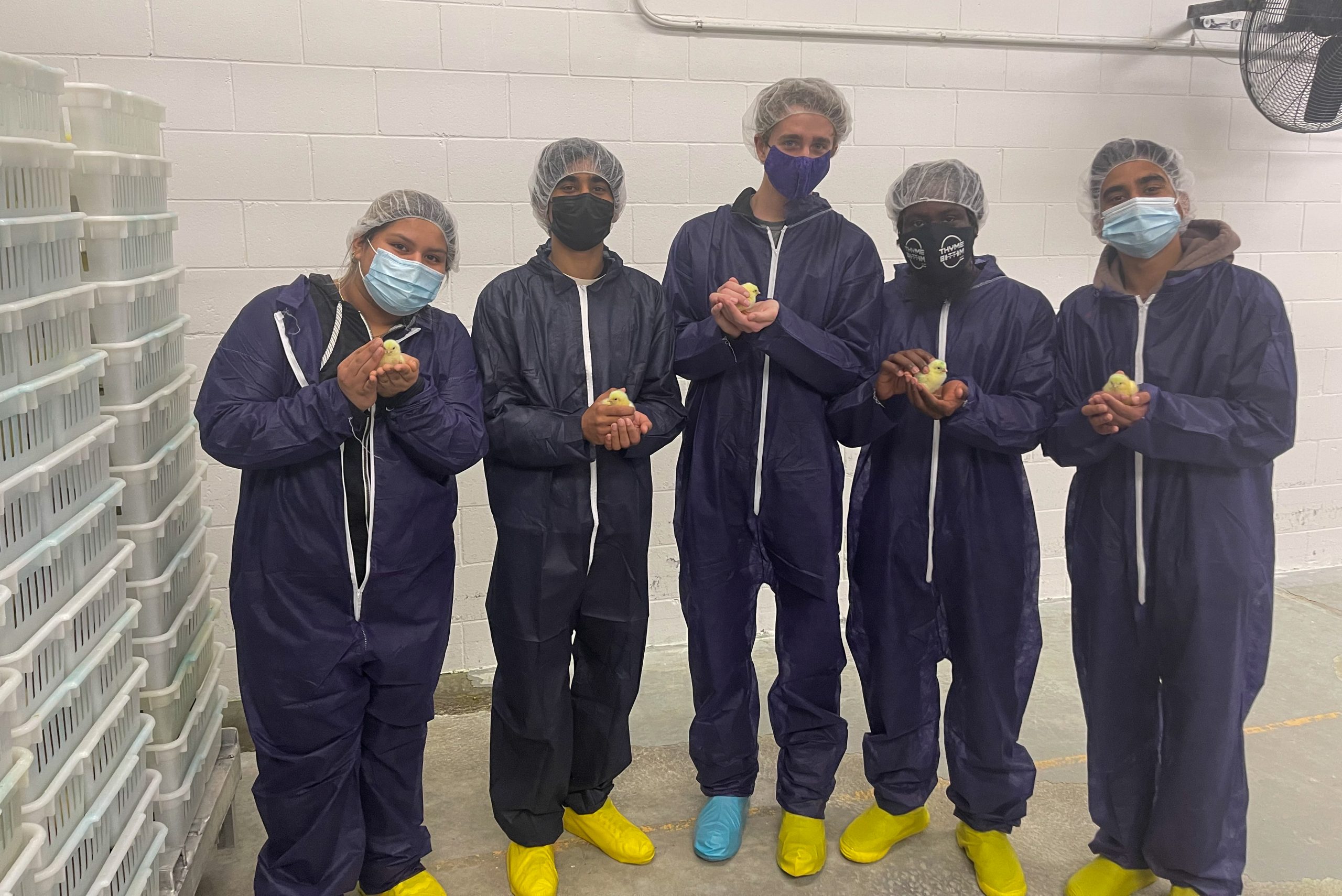Spanning from Dec. 13 to Jan. 7, the Miller Poultry internship provided five Goshen students with the opportunity to immerse themselves in the day-to-day operations of a large, family-owned poultry company.
“I was in the room where they cut off the heads,” said Caleb Shenk, a sophomore accounting major who took part in the internship. “There were the chickens coming down the line, and they had their heads. Then they went through this machine, and they did not have their heads. It was very bloody.”Miller Poultry’s four-week internship was not for the faint of heart.
Following the submission of resumes and an interview process, first-years Saif Ansari and Shoaib Ansari, sophomores Gladys Leon Diaz and Caleb Shenk, and junior Joshua Chassang were all accepted. It was certainly a commitment – Shenk estimates logging around 43 hours in the first week, including an hour-long commute each way.
While somewhat tiring at times, this intense exposure gave the students a look at many aspects of the company. The first week mainly involved tours of the administrative parts of the company. The second week consisted of more hands-on experience with the chickens.
Miller Poultry is a vertically integrated company; Shenk explains that “every part of the process from growing the corn to killing the chicken is under their direction.”
Shoaib was impressed by the chickens’ nutrition: “The food is basically like a sandwich of all the nutrients the chickens need. They’re really healthy chickens. The plant itself was also very clean.”
Shenk appreciated the facility’s methods: “I’m a vegetarian, so I don’t eat meat; but if I did, I would eat it from Miller Poultry. They are the best in the business for humane treatment and ethical sourcing of their products.”
Leon Diaz, a sustainability management major, was glad to be given the opportunity to “see various options of how your job can fit in various areas of the industry.”
Miller Poultry prides itself on great sustainability measures, stating the following on their website: “Our farms are in a smaller regional area, located within miles of our processing plant, so our carbon footprint is minimized.”
Students toured wastewater facilities near the end of the first two weeks.
“I think they go through a million gallons of water a day,” said Shenk. “So what do you do with all that water? For Miller Poultry, they take care of it, treat it, and actually water the crops that they use then, too.”
For the third week of the internship, the company asked employees to take a survey. The interns were tasked with distributing the survey and thinking of incentives for employees to complete it, as it had only a 20% completion rate in the previous year.
“We brainstormed and came up with the idea that five people would get [a] one-day paid vacation,” Shoaib said, “along with gift cards.”
Students were generally impressed with Miller Poultry’s hygienic, humane and sustainable practices. However, part of being immersed and involved in the company was getting a view of some of its shortcomings. While the incentives were somewhat helpful in completing surveys, they failed to address several deep-rooted issues.
Leon Diaz mentioned that the majority of workers were Hispanic, many with limited English skills.
“Many of them don’t know how to use a computer, [because] that’s the medium they use to distribute the survey,” she said. “People didn’t really know how the technology worked – they don’t know how to read or write.”
As the only Spanish speaker on the team (Shenk left after two weeks), Leon Diaz was left to translate and explain the questions to the employees.
“A lot of them didn’t really understand what the questions meant even if I tried to explain them to them,” she said. “I didn’t feel like it was really genuine or meaningful information. There was a lack of understanding of the culture.”
Unfortunately, the internship was cut off at the beginning of the third week, as three participants tested positive for COVID-19. This led to a lack of closure as survey results were not shared with students. However, generally speaking, students were happy with the opportunity.
“The internship was a good use of my time; I learned a lot,” Shoaib said.




